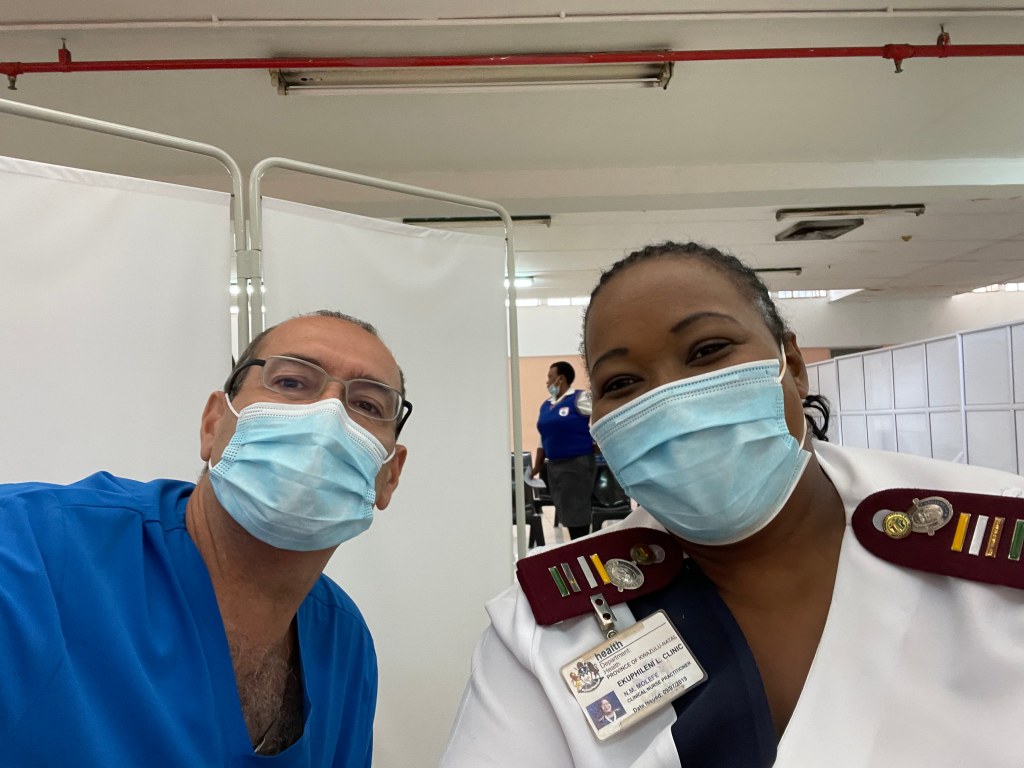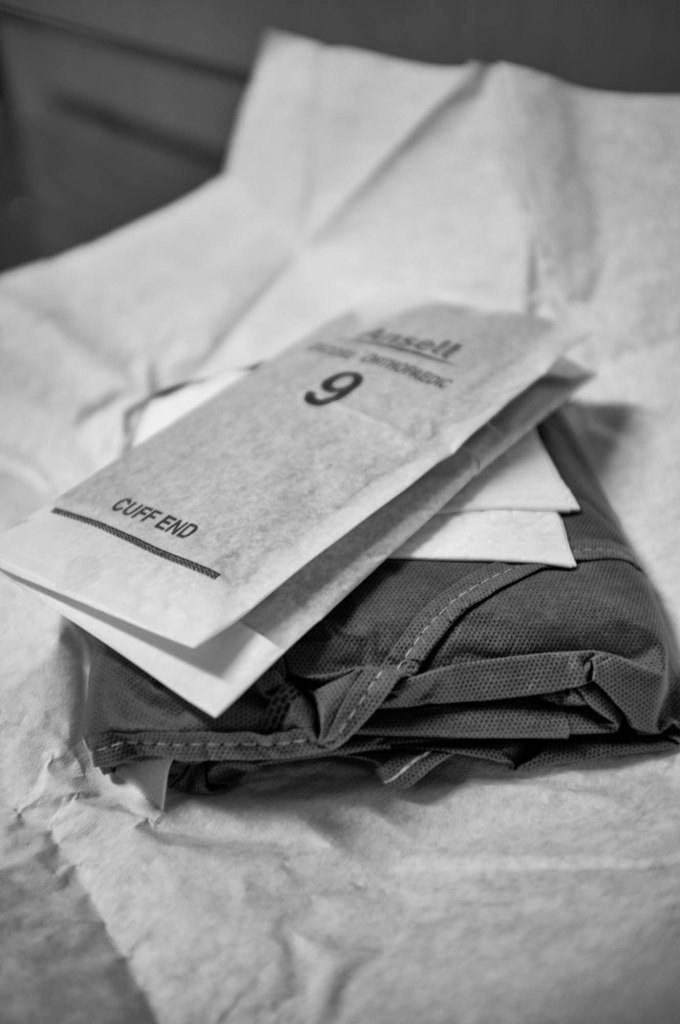I have been distracting myself since the second wave. Our hospital has quietened down as far as Covid-19 cases go, and we started doing limited planned surgeries. After my last post which detailed the overwhelming and horrific difficulties we faced during the second wave, a friend of mine suggested my next post should be about some good news.
So I thought of telling you about a touching visit by a medical student to her grandfather. He had been admitted with Covid pneumonia and is now recovering at home. I also thought I would write about how we have resumed planned surgeries, and how it feels different to when we resumed after the first wave. In the background I have been working on a document detailing how Covid-19 has affected me as an orthopaedic surgeon. I think the latter post would not be good news.
But there is good news for this post: I received my Johnson and Johnson vaccine on Friday. It was injected into my left arm by a community clinic nurse at Prince Mshiyeni Memorial Hospital, a provincial general hospital in the south of Durban, KwaZulu-Natal.
There is so much to say about the vaccinations for Covid-19. The scientific endeavour and ultimate production and licensing is nothing short of miraculous. The first time use of mRNA vaccines in the Pfizer and Moderna vials is science exploring the envelope . The Pfizer story is worth reading. It details a humble event. Albert Bourla is a Jew born in Thessaloniki, northern Greece, who steered Pfizer as CEO to be the first to release and use a vaccine for Covid-19. The story of who was the first person to be vaccinated in Greece is where much respect goes to Mr Bourla. Mrs Despina, 95 years old and also of Thessaloniki, is a Jewish-Greek holocaust survivor. She received her vaccine in early January 2021.
The Astra-Zeneca and Johnson & Johnson vaccines both use the older technology of inactive adenovirus with the DNA of the Corona virus incorporated. Unfortunately the Astra-Zeneca vaccine gave less protection for the new variants of the Corona virus, including the variant which caused South Africa to explode in the recent second wave. The adenovirus DNA vaccines are more robust than the modern mRNA vaccines, whose cold chain storage at -70 degrees Celsius is difficult in a developing country. South Africa had already taken delivery of one million doses of the Astra-Zeneca vaccine as the studies unfolded about it not being as protective as we had hoped for. It was an disheartening blow to the nation’s health care workersw who were relying on a vaccine to give them real protection.
Before the dust had settled on the unused Astra-Zeneca vials ( which were sold to other African countries) South Africa took delivery of 80 000 doses of the Johnson and Johnson Vaccine. This is a single dose vaccine as opposed to the others which rely on two doses, given at an interval of a few weeks to a few months. Over the last week the Department of Health co-ordinated the distribution of the Johnson and Johnson vaccine under the umbrella of a trial for health care workers called Sisonke. Sisonke in Zulu means “together”. It is a Phase 3 (b) clinical trial which is pragmatic and set in the real world. Perhaps a little more real in Africa.
The Department of Health distributed the 80 000 doses between 14 state hospitals and used these initial doses to protect frontline health care workers. Their EVDS (Electronic Vaccination Data System) website allowed me to register as a health care worker. My hospital then stratified staff into risk levels, and then I was able to register on the Sisonke website to be part of the trial. Besides entering personal details this also involved digitally signing an informed consent. After this I received a voucher number and a booking to get my vaccine on Friday 26 February 2021 at Prince Mshiyeni Memorial Hospital. It was not all as simple as it sounds.
The logistics of the vaccine delivery process has been difficult globally. South Africa has discovered the limitations of the public-private health care system. Some provinces allocated appointment times. When I received my invitation it was open ended: from 8 am until 4 pm. My heart sank as I thought of my visit two years ago to the Department of Home Affairs to apply for renewal of my passport. For that I arrived at 5 am to be close to the front of the queue. It could not be that bad, so I arrived at Prince Mshiyeni Memorial Hospital, 10km away from Netcare Kingsway Hospital, just after 7 am. I was relieved and reassured to see our nursing manager at the entrance welcoming and directing me. I was number 184 in the queue. Two hours later I received my injection. Then I had to wait the obligatory 15 minutes to ensure I did not suffer an adverse reaction.
I walked out feeling empowered. I had survived a mild dose of Covid-19 at the end of last year, and now with the vaccine I was protected. As data comes in I will in turn protect others. But until a significant proportion of our population is vaccinated I will continue applying the appropriate precautions. We should all continue to wear masks, wash hands and maintain social distance. In the hospital and my office the minimum requirement remains a mask, visor, plastic apron and gloves.
We still have a long way to go with this pandemic, but the vaccine is the most significant step in our battle to gain control of this novel corona virus.
I am grateful to the scientists who developed the vaccine and the South African government for choosing to protect us. Special thanks to the manager of Netcare Kingsway Hospital, Mrs Demetriou for her efforts to get her staff vaccinated. Health care workers have seen a different reality to the rest of the population.







